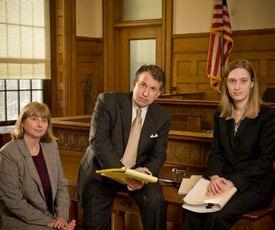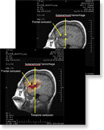Nursing Home Negligence and Abuse
Fighting for the Dignity of our Parents and Grandparents in Massachusetts Nursing Homes
With our population slightly older than the national average, Massachusetts has a high percentage of our seniors in long term care facilities. Most families - as a last resort when they can no longer care for a parent or grandparent at home - seek what they believe to be the best nursing home or assisted living facility in their area.
Our seniors deserve to be treated with dignity and are entitled to enjoy all of life’s pleasures that still remain available to them. We reject the conception that accidents are inevitable for nursing home residents, the notion that an elderly person’s life is somehow less valuable, or the conception that death is excusable because of a person’s age or medical problems. We have seen how good compassionate care can prolong and enhance a person’s life.
Fortunately, federal and state regulations spell out requirements of good nursing home care. Nursing homes should:
- Prepare an individualized care plan for each resident
- Employ and train sufficient staff, 24 hours per day/7 days per week, to ‘attain or maintain each resident’s highest practicable physical, mental and psychosocial well-being’
- Provide care for each resident in a manner and in an environment that maintains or enhances his or her quality of life, dignity and respect, meaning that residents deserve comfortable, clean surroundings, and programs to stimulate their faculties and promote social interaction
- Identify residents who are at risk for falling, and take steps to prevent falls from bed, while walking, or while in a wheelchair or stationary chair
- Supply nutritious meals, and help residents with eating and drinking when necessary
- Supply medications, and help in taking them on schedule
- Monitor residents and report changes in health status to their doctors
- Reposition bed-bound residents to prevent pressure sores and skin ulcers
- Keep residents safe and secure
Unfortunately, many local nursing homes have been purchased by national chains that place corporate profits ahead of people.
Insufficient staffing, staff turnover, and lack of adequate education and training leads to many entirely preventable injuries:
- Falls and fractures
- Negligent transport of residents
- Malnutrition and dehydration
- Medication errors
- Untreated pressure sores and skin ulcers
- Burn injuries
- Entrapment in bed rails
- Unsupervised Alzheimer's residents
Elder abuse can happen anywhere, from nursing homes to an elderly person’s own home:
- Physical abuse
- Emotional abuse, including isolation and intimidation
- Sexual abuse
- Intentional neglect by a caregiver
- Financial exploitation
Statute of Limitations.
Generally, Massachusetts allows three years from the date of the nursing home resident’s accident or injury to file a nursing home negligence lawsuit, but the particular facts of your case may result in shorter periods of time, and there may also be special notice requirements.
Due to the time necessary to properly gather evidence and investigate a case before filing suit, and the problems encountered locating witnesses because of high turnover of nursing home staff, a resident or his or her family should retain an attorney immediately upon suspecting wrongdoing by the nursing home.
How We Use Evidence to Win Nursing Home Negligence and Abuse Cases
From the inception of a case, we consider the types of "demonstrative evidence" that will bring alive key pieces of evidence and help a jury understand your case:
- Medical calendars with the important dates when negligence occurred
- Medical calendars summarizing our client’s medical treatment
- Enlargements of federal and state regulations that contain standards of nursing home practice
- Case specific medical illustrations showing pertinent anatomy, steps in a surgical procedure, and development and progression of medical complications
- Color enhanced CT scans, MRIs and x-rays that show our client’s injuries
- Special photography revealing alterations in medical records and enlargements of corrupted records
We have our own inventory of exemplar personal alarms, bed alarms, and fall prevention devices used in nursing homes, as well as anatomical models. We commission model makers to create case-specific anatomical models when necessary.
Results in Nursing Home Negligence and Abuse Cases
This area of practice is still in its infancy because relatively few Massachusetts nursing home negligence and abuse cases have yet gone to trial—but our firm is committed to obtaining substantial verdicts that reflect the egregious character of nursing home negligence and abuse. We have collected millions of dollars for our clients over the years.
Contact Steven H. Schafer & Associates for help with nursing home negligence and abuse cases in Massachusetts.

Learn How Evidence Wins Cases
A personal injury case can hinge on a single piece of evidence, one key witness, or a seemingly minor detail that is easily overlooked. Read More

